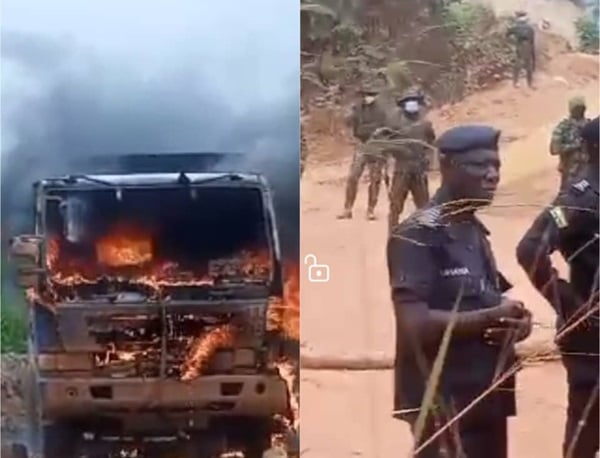The fatal shooting of an Assembly Member in Ghana’s Ashanti Region has ignited a firestorm of controversy and violence, exposing deep-seated tensions between mining communities, security forces, and mining companies. The incident, which unfolded on Tuesday, September 9, 2025, in the Amansie West District, claimed the life of Hon. Samuel Danquah, the Assembly Member for Aboabo, and left two others injured. The trigger for the deadly confrontation was the alleged killing of a miner by security personnel of Asanko Mines a day earlier, an accusation that sparked outrage and protests among local youth.
The youth, fueled by grief and anger over their colleague’s death, took to the streets, barricading roads in a desperate attempt to draw attention to their grievances. This act of protest, however, escalated the situation, leading to the deployment of soldiers to quell the unrest. The standoff between the protesting youth and the armed soldiers quickly devolved into violence, culminating in the tragic shooting of Hon. Danquah and the wounding of two others. Eyewitness accounts paint a harrowing picture of chaos and desperation, with the youth demanding justice for the alleged killing of their fellow miner and the soldiers responding with lethal force.
The death of the Assembly Member further inflamed the already volatile situation, pushing the enraged residents to retaliate. In a fiery display of anger, they set ablaze vehicles belonging to Asanko Mines, underscoring the deep-seated resentment towards the mining company. The incident highlights the growing divide between mining communities and mining companies, with residents accusing the latter of prioritizing profits over the safety and well-being of the communities they operate in. The residents feel their livelihoods are threatened, their safety compromised, and their concerns ignored.
The incident in Amansie West District is not an isolated one. It reflects a broader pattern of conflict and mistrust that has plagued mining communities across the region. Residents often complain about the environmental damage caused by mining activities, the displacement of communities, the inadequate compensation for land acquisition, and the lack of opportunities for local employment. These grievances, coupled with allegations of heavy-handedness by security forces protecting mining interests, have created a volatile mix, ripe for conflict.
The shooting of Hon. Danquah has brought these simmering tensions to a boil, highlighting the urgent need for dialogue and intervention to address the root causes of the conflict. A thorough investigation into the circumstances surrounding the death of the miner and the subsequent shooting of the Assembly Member is crucial to establish accountability and ensure justice is served. Equally important is the need for meaningful engagement between mining companies, local communities, and government authorities to address the legitimate concerns of the residents and find sustainable solutions that benefit all stakeholders.
Moving forward, preventing further tragedies of this nature requires a multifaceted approach. Mining companies must prioritize responsible and sustainable mining practices that minimize environmental impact and maximize benefits for local communities. They must also engage in open and transparent communication with residents, address their grievances, and invest in community development projects. Government authorities have a crucial role to play in ensuring effective regulation of the mining sector, protecting the rights of communities, and providing adequate security without resorting to excessive force. Furthermore, fostering dialogue and building trust between all stakeholders is essential to create a peaceful and prosperous future for mining communities in Ghana. Ignoring these underlying issues will only perpetuate the cycle of violence and mistrust, jeopardizing the stability and development of the region.


